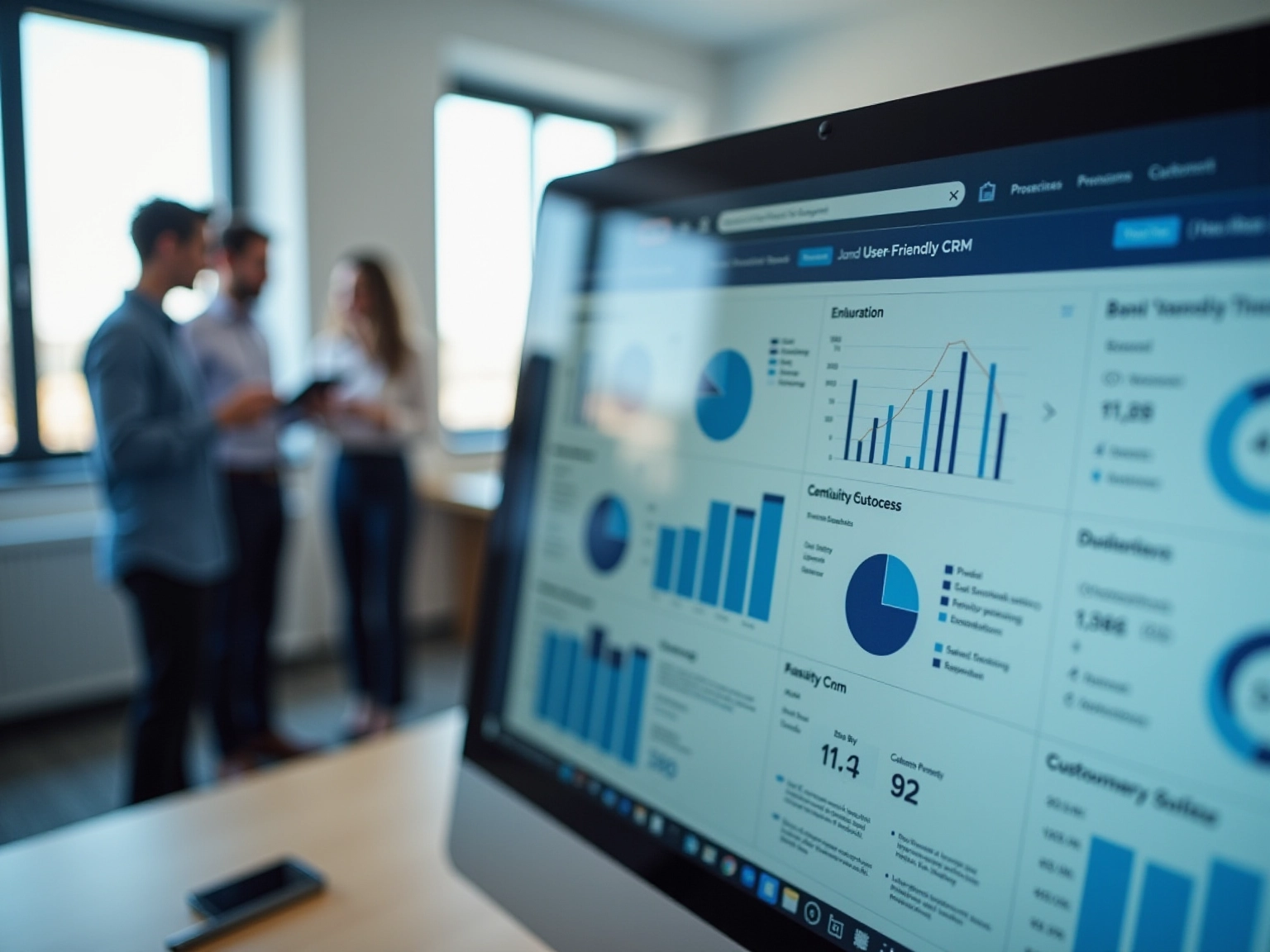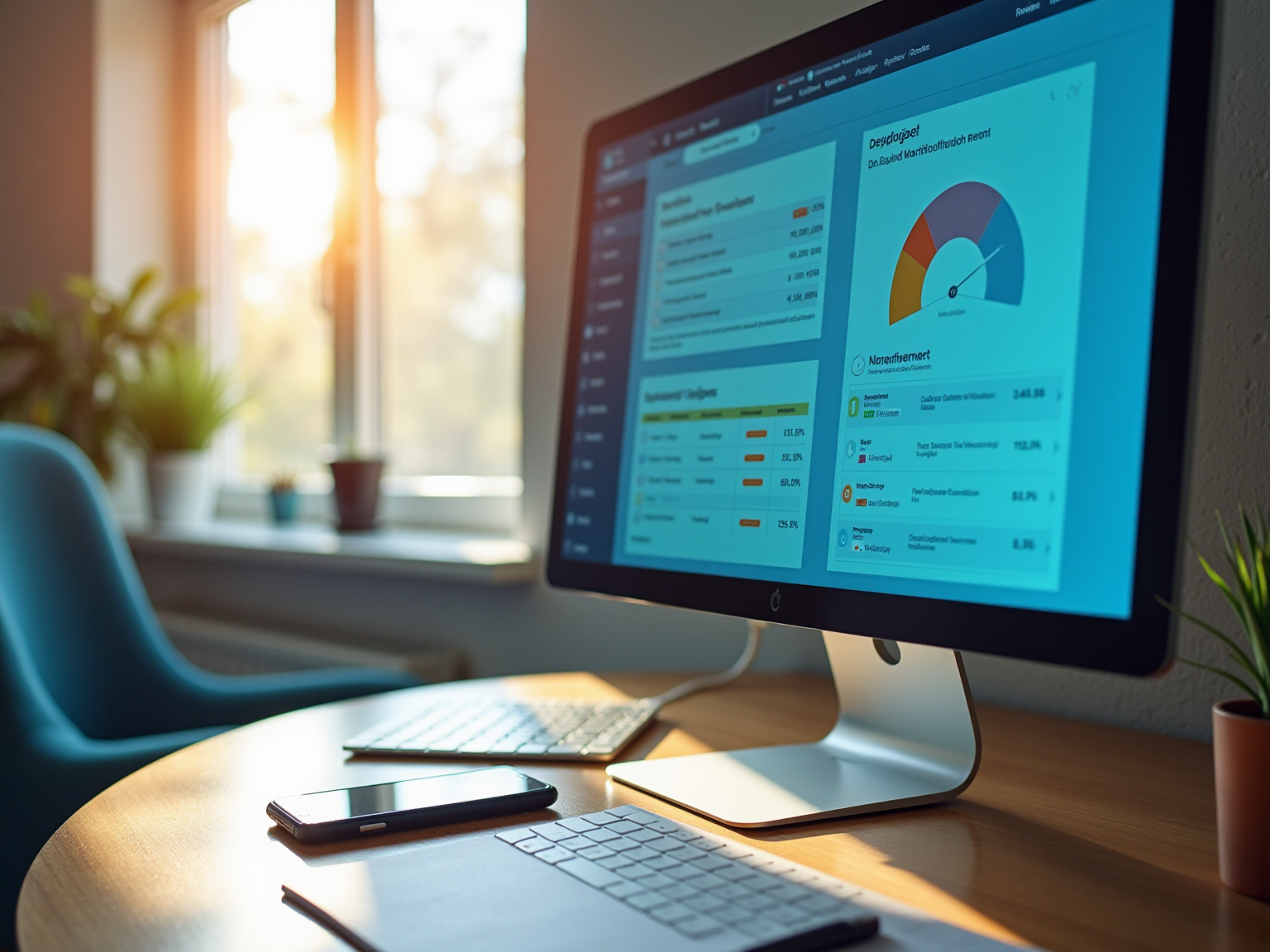Overview
The leading features of practise management software for accounting firms are pivotal in transforming operational efficiency and client interactions. These include:
- Workflow automation
- CRM systems
- Time tracking and billing software
- Advanced reporting and analytics tools
Each feature is meticulously crafted to enhance productivity and streamline processes. This article underscores how these capabilities yield significant time savings, elevate customer response rates, and foster improved financial decision-making. Ultimately, these advancements revolutionise the manner in which accounting firms operate and serve their clients, paving the way for a more effective and client-centred approach.
Key Highlights:
- Workflow automation tools streamline routine tasks like data entry and customer communication, enhancing operational efficiency in accounting firms.
- Automated notifications improve client response rates by 40% and reduce response times by 50%, leading to increased productivity and customer satisfaction.
- CRM systems centralize customer information, automate scheduling, and provide analytics that enhance service customization and client interactions.
- Companies using CRM solutions report saving 288 hours during tax season and a 40% increase in customer response rates.
- Time tracking and billing software simplify invoicing and accurately capture billable hours, reducing administrative burdens and improving profitability.
- Detailed reports from time tracking software help identify inefficiencies and enhance resource allocation, with firms saving significant time during busy seasons.
- Advanced reporting and analytics tools provide real-time insights into financial performance, aiding in decision-making and strategy adjustments.
- The integration of analytics into practice management improves client communication and workflow efficiency, fostering adaptability in a rapidly evolving industry.
Introduction
In the rapidly evolving landscape of accounting, firms are embracing innovative technologies to enhance efficiency and client satisfaction. Workflow automation, customer relationship management (CRM), time tracking, and advanced reporting are transforming traditional practices, enabling accountants to streamline operations and focus on delivering exceptional service.
By integrating tools like Glasscubes, firms are not only improving their internal processes but also fostering stronger relationships with clients through timely communication and insights.
As the industry prepares for the future, understanding the impact of these technological advancements is crucial for accounting professionals aiming to thrive in 2025 and beyond.
Workflow Automation
Workflow automation tools are revolutionising the operational landscape of accounting firms by streamlining routine tasks such as data entry, document management, and customer communication. By implementing automated workflows, businesses can guarantee that tasks are carried out consistently and on time.
For example, the platform offers automated notifications that prompt customers for responses, significantly reducing the time accountants spend on follow-ups. This results in a more efficient workflow, as all correspondence is organised within each audit request, providing clear visibility of outstanding queries. Such efficiency not only boosts productivity but also enhances customer satisfaction, as clients receive timely updates and requests.
Companies utilising this platform have reported a remarkable 40% increase in client response rates and a 50% reduction in response times, underscoring the effectiveness of these solutions. Furthermore, expert insights suggest that automation can elevate team productivity by as much as 20%, showcasing the transformative potential of these technologies in modern financial practises.
Unlike traditional email communication, which often leads to lost messages and delayed replies, this platform ensures that all interactions are structured and easily accessible. The integration of workflow tools with numerous SaaS platform connexions facilitates seamless operations, further amplifying efficiency. Additionally, the platform is secure, encrypted, and GDPR compliant, providing peace of mind for financial organisations and their clients.
In conclusion, the adoption of workflow automation tools such as Glasscubes is essential for financial organisations striving to enhance customer interaction and satisfaction in 2025.
Customer Relationship Management (CRM)
CRM systems tailored for accounting businesses centralise crucial customer information, including contact details, communication history, and service preferences. This integration not only streamlines customer interactions but also empowers companies to proactively address customer needs. For instance, CRMs can automate the scheduling of meetings and follow-ups, ensuring customers receive timely attention and feel valued. Additionally, analytics derived from CRM systems yield valuable insights into customer behaviour, enabling firms to customise their services effectively.
Companies utilising CRM solutions, such as those highlighted, have reported significant benefits, including:
- An impressive 288 hours saved during tax season
- A 40% increase in customer response rates
Glasscubes enhances engagement by providing automated reminders that ensure prompt data submission, along with real-time tracking that keeps both users and teams informed about outstanding requests. These outcomes underscore the critical role of CRM systems in nurturing long-term relationships.
As Eilis McCann from Accounting CRM states, “Better customer interactions and communication ultimately lead to stronger customer relationships and improved loyalty.” This emphasises that enhanced client interactions are essential for accounting practises in 2025.

Time Tracking and Billing
Time tracking and billing software empower accountants to effortlessly log hours spent on various tasks and projects, ensuring that all billable hours are accurately captured and invoiced. By implementing automated billing cycles based on tracked hours, companies can significantly lessen the administrative burden related to manual invoicing. This automation simplifies the billing process while improving precision, with companies reporting enhancements in this area due to automated time tracking.
For instance, Sophie Montgomery from TaxAssist Accountants noted that her organisation saved an impressive 288 hours in just one tax season, underscoring the significant time savings achievable through automation. Furthermore, detailed reports on time usage enable businesses to identify inefficiencies and enhance resource distribution, ultimately leading to increased profitability. As the industry evolves, the incorporation of such software is becoming increasingly vital for financial organisations aiming to improve operational efficiency and customer satisfaction. Notably, companies using Glasscubes have reported a remarkable 50% decrease in response times, clearly illustrating the advantages of embracing advanced time tracking and billing solutions.
Additionally, Glasscubes offers a seamless onboarding experience for its user portal, requiring no training and providing tailored setup support during the onboarding call. This ensures that financial organisations can swiftly adapt to the platform, enhancing client interaction through secure file sharing and automated notifications. By leveraging these capabilities, finance companies can ensure that their billing procedures are not only efficient but also precise, reinforcing the significance of automation in the financial landscape.
![]()
Reporting and Analytics
Advanced reporting and analytics tools empower accounting firms to generate real time insights into their financial performance, significantly enhancing decision-making capabilities. These tools facilitate the creation of adaptable reports that monitor essential metrics, such as revenue growth, customer profitability, and project expenses. By leveraging these insights, companies can identify trends, forecast future performance, and make informed, data-driven decisions. For example, analysing customer profitability reports enables businesses to pinpoint their most lucrative services, allowing for strategic adjustments in their offerings.
The integration of analytics into practise management software for accounting firms has proven beneficial, with organisations reporting streamlined processes and improved communication with clients. This system enhances communication by providing automated reminders that prompt customers for responses, ensuring that no correspondence is overlooked or forgotten. Moreover, features like secure file sharing and document storage/exchange further streamline communication and bolster collaboration. A notable case study illustrates how incorporating AI into these solutions has improved workflow efficiency, enabling accountants to share AI-generated insights directly from the platform. This not only saves time but also fosters a culture of adaptability, crucial as the accounting landscape evolves rapidly.
As firms increasingly adopt advanced reporting tools, they witness significant improvements in financial performance, with many reporting a marked increase in customer response rates and a reduction in response times, attributed to the effective communication facilitated by Glasscubes. The ability to access real time financial insights is vital for accountants, driving superior outcomes and encouraging a proactive approach to client engagement.

Conclusion
The integration of innovative technologies is revolutionising accounting firms, significantly enhancing efficiency and client satisfaction. Tools such as Glasscubes streamline workflow automation, transforming essential tasks like data entry and client communications. This not only boosts productivity but also increases engagement, with firms reporting higher response rates and faster follow-ups.
Tailored Customer Relationship Management (CRM) systems play a crucial role in cultivating long-term client relationships. By centralising client information and automating interactions, firms can proactively address client needs and personalise services, ensuring that clients feel genuinely valued.
Time tracking and billing solutions further enhance operational efficiency by automating invoicing and accurately capturing billable hours. This alleviates administrative burdens and improves profitability, as firms can generate reports to pinpoint inefficiencies and optimise resources effectively.
Advanced reporting and analytics tools deliver real-time insights that empower data-driven decision-making. These tools enable firms to monitor key metrics and forecast performance, facilitating strategic adjustments that align with client expectations.
As the accounting industry continues to evolve, prioritising the integration of these technologies is imperative. Embracing innovation is not merely a trend; it is essential for achieving success and addressing client demands in 2025 and beyond. The future of accounting depends on leveraging these tools to enhance service delivery and fortify client relationships.
